Review: Is Revolut any good, and how does Revolut work?
Links on Head for Points may support the site by paying a commission. See here for all partner links.
This is our review of the Revolut Mastercard / Visa travel money card, including a look at how Revolut works.
If you apply via the links in this article and top up £10, you will receive a plastic Revolut card for free. This saves you the standard £4.99 delivery fee and is a special offer we have arranged for Head for Points readers.
EDIT May 2020: The free card offer is currently suspended due to coronavirus. You will NOT receive a free card if you use the link in this article.
Without the plastic card your use of Revolut would be limited to online shopping.
Why should I get a 0% foreign exchange fee card for travelling?
As the Lloyds Avios Rewards Mastercard is no longer available to new applicants, there are no travel rewards credit cards which offer fee-free overseas purchases.
If you use a rewards credit card when travelling, you will incur a fee of 3% on everything you buy. This can never be justified by the miles and points earned on the transaction. It may be justified if you need to hit a spending target to trigger a sign-up bonus or a voucher such as the British Airways American Express 2-4-1.
Over the next week or so we are looking at a few no and low FX fee options. We reviewed Tandem a few weeks ago (click here). Here is our review of the WeSwap Mastercard travel money card and we will also be looking at some 0% credit cards. Our review of Starling Bank is here if you want to compare.
All of these products have different features – there is no ‘right’ answer. Some are more fiddly than others, some are prepaid cards and some are credit cards, some have added benefits such as 0% interest on purchases.
If you DO want to earn miles and points from your foreign spending, the best option is Curve Card. Curve is free and has a 1% foreign exchange fee (2/3rd lower than most cards). It recharges your purchase to any other Visa or Mastercard you own in Sterling. This means you earn miles and points on the underlying card without paying the usual 2.99% foreign transaction fee. Curve Card will pay you £5 for trying it out – read our article here.
The Revolut Mastercard or VISA travel money card
The Revolut travel money card started out as just a no-fee pre-paid travel money card. You need to load it before you spend on it.
That was, and still is, a loss leader feature to encourage you to sign up. Revolut’s recent funding round raised $250 million at a very heady valuation of $1.7 billion, because of the perceived potential to turn it into an online-only bank.
A lot has been happening over the last year like the introduction of travel insurance and crypto currency options. You can also use your Revolut account as your UK or Euro current account. The Premium version of the Revolut card features disposable virtual cards for online shopping.
The official Revolut website is here.
What is Revolut?
Like WeSwap, Revolut is an online platform with a smartphone app and a linked plastic Mastercard or Visa card. (Revolut is issuing both Mastercard and Visa cards and it seems to be random which one you get). It lets you exchange your money for any foreign currency fee free.
Revolut works as a digital wallet for a total of 25 currencies including Sterling, Euros and US Dollars and lets you transfer money for free to friends or businesses.
To use it in the real world (shops, restaurants, ATM), you need to order a physical plastic card which will give you 0% FX fees on your spending and money withdrawals abroad.
Unlike WeSwap, Revolut exchanges immediately at the real exchange rate without adding any fees. There is, however, a 0.5% -1.5% mark up at the weekend depending on the currency.
Because Revolut uses the interbank rate, you should be getting slightly finer pricing than using a Visa or Mastercard 0% card as those use the centralised Visa and Mastercard exchange rate.
How does Revolut work?
You can sign up on the Revolut website here. You will need to download the Revolut app and verify the account with your phone number. You can then start adding money from your bank account or using a credit card (Mastercard or VISA).
You will need to verify your identity with your passport, driving licence or ID card if you want to spend more than a total of £500 with your Revolut card.
If you want a physical card, and if you’re planning to use Revolut for payments abroad you will need the card, you can order one for via the app. The card usually has a £4.99 delivery charge but if you order it via our link and top up with £10 you will get the card for free. This is a special offer from Revolut for Head for Points readers.
How to get the free card
In order to get the physical card free of charge you must click on our Revolut link here.
Insert your mobile number and click on the URL which Revolut will send to your phone. This will open the Google Play or Apple App Store.
Download the app, open it and create an account.
You need to top up £10 before you can select and order your free card (standard delivery).
Then verify your identity (tap more -> profile -> verify identity) and your card (either Mastercard or Visa) will be with you in a few days.
As well as the UK, you can also get a Revolut card if you live in: Austria, Belgium, Bulgaria, Croatia, Republic of Cyprus, Czech Republic, Denmark, Estonia, Finland, France, Germany, Greece, Hungary, Iceland, Ireland, Italy, Latvia, Liechtenstein, Lithuania, Luxembourg, Malta, Netherlands, Norway, Poland, Portugal, Romania, Slovakia, Slovenia, Spain, Sweden and Switzerland.
How do I spend money?
You can top up your Revolut account by bank transfer, debit or credit card. There is no longer a fee for credit card top ups following the change in UK law in January.
My TSB credit card for example treats Revolut top-ups as a ‘purchase’. Some credit cards treat Revolut as a cash advance (no points, cash fee). Other cards such as those issued by Creation, eg IHG Rewards Club Mastercard, seem to treat it as a purchase (would earn points, no fee) although a comment below suggests that may have changed. There could be potential here for generating ‘free’ frequent flyer miles by loading your card from a high earning Visa or Mastercard such as the Virgin Atlantic Rewards card (0.75 miles per £1) and using it for debit card transactions.
The money will sit in your Revolut account in the currency you’ve topped up but you can move it in between your different currency accounts at the current spot exchange rate. If you have a bank account in the UK, are travelling to the US in a couple of weeks and the current exchange rate feels exceptionally good, you could exchange your money in advance to avoid a possibly worse exchange rate later. This works for all currencies I listed above.
When you make a purchase abroad, the transaction is debited from your £ balance or in the country’s currency if you have stored money in your virtual wallet.
Can I make ATM withdrawals abroad with Reolut?
Yes, but free cash withdrawals are limited to £200 per month. After that you pay 2%.
With the premium card your free cash withdrawals are limited to £400 per month.
How can I send money?
If you have money left on your Revolut card after a trip, you can transfer it back into your bank account.
You need to set yourself up as a beneficiary by entering your bank details manually and will then be able to select the amount of money you want to transfer. Afterwards you will get a notification that the money will be reaching your account the same day and when I last tried it my money was in my current account within less than an hour.
As well as paying money back into your own account you can also pay another person or a business with your Revolut app. Simply add the bank details and your money will be transferred.
Your Revolut account can also double as a regular UK and/or Euro bank account. Your card has its own sort code and account number. This is how the company sees the product developing. They hope that you will pay your salary into your Revolut account, use the card for all of your spending at home or abroad and also pay your bills with it.
What limits does Revolut have?
Daily cash withdrawals from ATMs are limited to €5,000 via Mastercard and US$1,000 via VISA.
What charges does Revolut have?
A spare Revolut card costs £5 + £5 delivery fee
Transfers to friends or businesses take two business days – you must pay £5 to get the money across in one business day
Transactions of up to £5,000 per month are free, thereafter the fee is 0.5% unless you have the Premium card outlined below
At the weekend Revolut uses the exchange rate from Friday and adds, for most currencies, a 0.5% mark up
Three currencies DO incur a fee when spending – Thai Baht (1.5%), Russian Ruble (1.5%), Ukrainian Hryvnia (1%)
You can withdrawal up to £200 per month from an ATM without paying a fee but you pay 2% after that (£400 if you have the Premium card)
What else?
Revolut has introduced a spare change savings option. You can set up Revolut Vault which will let you round up your spending to the nearest £ or set up recuring payments. Money sitting in Revolut Vault will not be touched when you use your card, but you can transfer it back into your regular Revolut account.
Revolut has a Premium card
For £6.99 per month you can upgrade your card to a Premium card. This card comes with a free ATM withdrawal allowance of £400/€400 per month as well as unlimited FX volume.
As a Premium customer you also get free overseas medical insurance, free global express delivery, exclusive priority 24/7 customer support and exclusive Premium promotions. To be honest, however, I struggle to see the value here unless you are hitting the £5,000 monthly cap for FX transactions.
There are four different Premium card designs which you can order for free. A new feature is free disposable virtual cards which make onine shopping more secure by creating a new card number everytime you make a purchase.
In the near future you will apparently be able to purchase airport lounge access via the Revolut app at a wholesale rate.
Conclusion – is a Revolut card worth getting?
Here at Head for Points we are generally not keen on prepaid foreign currency cards. If you have a good income then you will get the best deal by getting a standard credit card with 0% foreign exchange fees and using that abroad. We will be looking at a few of those products, such as the Virgin Money Travel credit card and – under reader pressure! – Aqua, in this series.
You may get slightly better FX rates with Revolut because it uses the exact interbank rate between Monday and Friday but I am not sure that the tiny difference in rates justifies the requirement to continually top up.
WeSwap (here is our review of that), Revolut and the like are well suited to people who are less likely to qualify for credit cards, or for parents to give to their children when travelling. There may be other members of your family who will find it more useful than you. Pre-paid cards are a bit fiddly as you need to top up your account via the app and you either need to plan your spending in advance, are relying on wifi or will have to top up way more than you will be spending.
That said, there is a big difference between WeSwap and Revolut. With WeSwap you need to exchange your money one week in advance to get the lowest 1% fee. Revolut exchanges immediately at the actual exchange rate (which you can monitor in the app) and unless you load the card at the weekend, you won’t be charged a fee at all.
It is possible that you are happy using the pre-paid card rather than potentially restricting your ability to get a miles earning credit card by adding a 0% FX credit card to your credit report.
Revolut is free – and with our link you will also get the physical card for free – so signing up and giving it a try does not cost you anything. You may find that Revolut works for you.
You can find out more about Revolut on their website here.
PS. If you are not a regular Head for Points visitor, why not sign up for our FREE weekly or daily newsletters? They are full of the latest Avios, airline, hotel and credit card points news and will help you travel better. To join our 70,000 free subscribers, click the button below or visit this page of the site to find out more. Thank you.
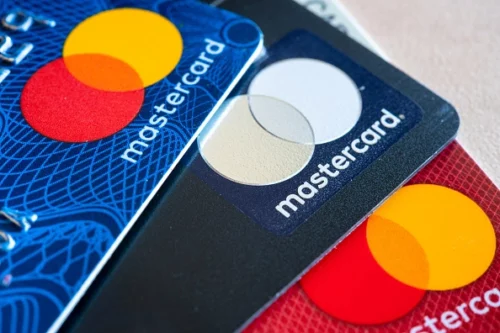
Want to earn more points from credit cards? – July 2025 update
If you are looking to apply for a new credit card, here are our top recommendations based on the current sign-up bonuses.
In 2022, Barclaycard launched two exciting new Barclaycard Avios Mastercard cards with a bonus of up to 25,000 Avios. You can apply here.
You qualify for the bonus on these cards even if you have a British Airways American Express card:

Barclaycard Avios Plus Mastercard
Get 25,000 Avios for signing up and an upgrade voucher at £10,000 Read our full review

Barclaycard Avios Mastercard
Get 5,000 Avios for signing up and an upgrade voucher at £20,000 Read our full review
You can see our full directory of all UK cards which earn airline or hotel points here. Here are the best of the other deals currently available.
SPECIAL OFFER: Until 15th July 2025, the sign-up bonus on the Marriott Bonvoy American Express Card is TRIPLED to 60,000 Marriott Bonvoy points. This would convert into 25,000 Avios or into 40 other airline schemes. It would also get you at least £300 of Marriott hotel stays based on our 0.5p per point low-end valuation. Other T&C apply and remain unchanged. Click here for our full card review and click here to apply.
SPECIAL OFFER: Until 14th August 2025, the sign-up bonus on the Hilton Honors Plus debit card is TRIPLED to 30,000 Hilton Honors points. You will also receive Gold Elite status in Hilton Honors for as long as you hold the card. Click here for our full card review and click here to apply.

American Express Preferred Rewards Gold Credit Card
Your best beginner’s card – 20,000 points, FREE for a year & four airport lounge passes Read our full review

British Airways American Express Premium Plus Card
30,000 Avios and the famous annual Companion Voucher voucher Read our full review

The Platinum Card from American Express
50,000 bonus points and great travel benefits – for a large fee Read our full review
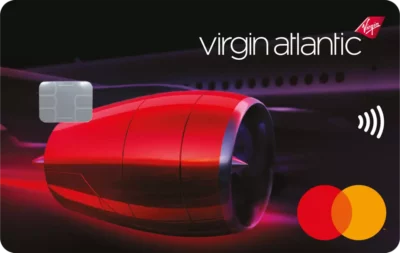
Virgin Atlantic Reward+ Mastercard
18,000 bonus points and 1.5 points for every £1 you spend Read our full review
Earning miles and points from small business cards
If you are a sole trader or run a small company, you may also want to check out these offers:

The American Express Business Platinum Card
50,000 points when you sign-up and an annual £200 Amex Travel credit Read our full review

The American Express Business Gold Card
20,000 points sign-up bonus and FREE for a year Read our full review
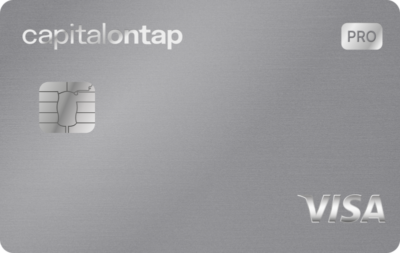
Capital on Tap Pro Visa
10,500 points (=10,500 Avios) plus good benefits Read our full review

Capital on Tap Visa
NO annual fee, NO FX fees and points worth 0.8 Avios per £1 Read our full review
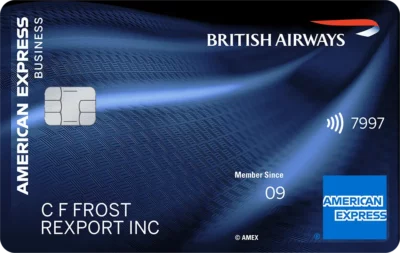
British Airways American Express Accelerating Business Card
30,000 Avios sign-up bonus – plus annual bonuses of up to 30,000 Avios Read our full review



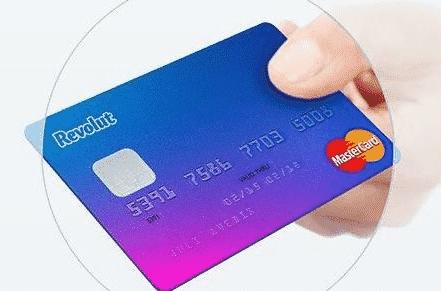
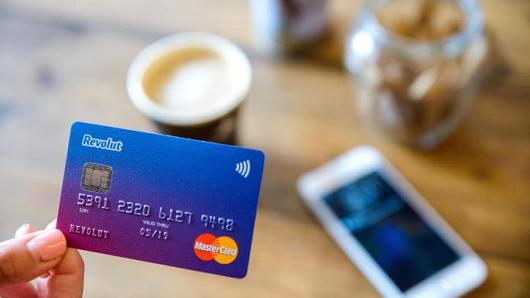
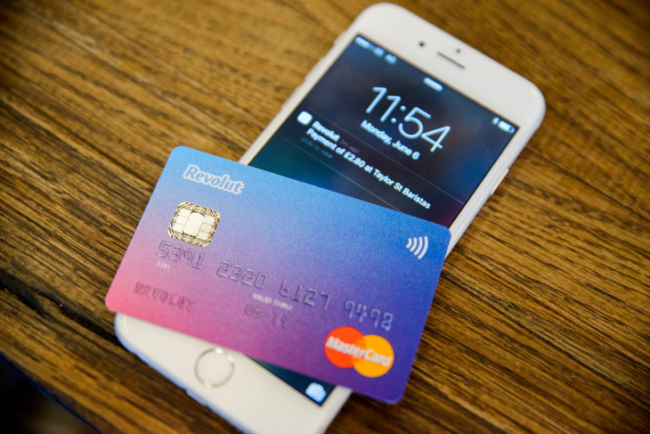






Comments (223)